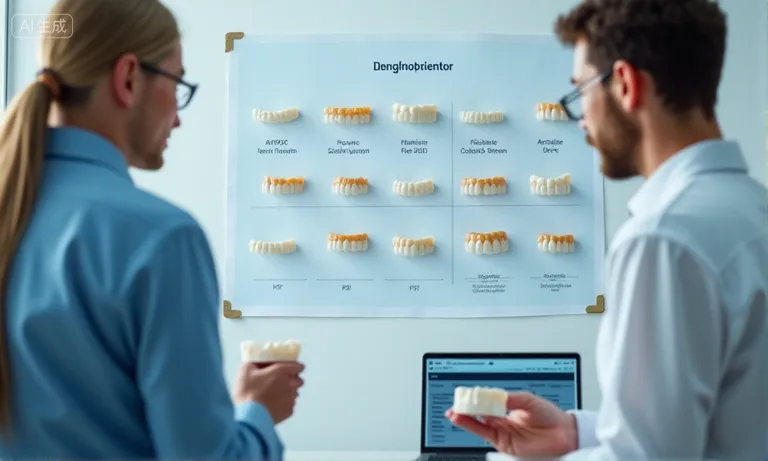Selecting the right dental outsourcing lab requires careful evaluation across multiple factors that shape cost efficiency, workflow reliability, and long-term scalability. Beyond price alone, procurement teams and practices must examine whether a partner’s quality standards, digital capabilities, and communication systems align with their clinical and operational needs. A well-chosen lab does more than reduce costs—it minimizes risks, improves predictability, and enhances overall performance.
Key areas of evaluation include:
- Certifications & Quality – ISO, FDA, or CE compliance paired with consistent material standards.
- Digital Integration – CAD/CAM compatibility, 3D printing, and seamless STL workflows.
- Communication & Support – Responsive channels, account managers, and training resources.
- Turnaround & Logistics – Realistic benchmarks and efficient global shipping.
- Cost Transparency – Clear pricing, no hidden fees, flexible service models.
- Reputation & Feedback – Peer reviews and verified long-term client satisfaction.
- Scalability – Capacity to manage higher case volumes without compromising outcomes.
Taken together, these criteria ensure outsourcing is not just a cost-saving tactic but a strategic investment in operational stability and growth. Practices and procurement leaders who evaluate holistically are better positioned to build partnerships that deliver predictable results, reliable collaboration, and sustainable expansion.
Why Do Certifications and Technical Quality Define a Reliable Outsourcing Lab?
When practices choose an outsourcing lab, the first question is often: can this partner prove compliance and deliver consistent quality? Certifications and technical benchmarks provide the evidence procurement teams need to reduce risk, while material standards and specialized expertise ensure long-term reliability.
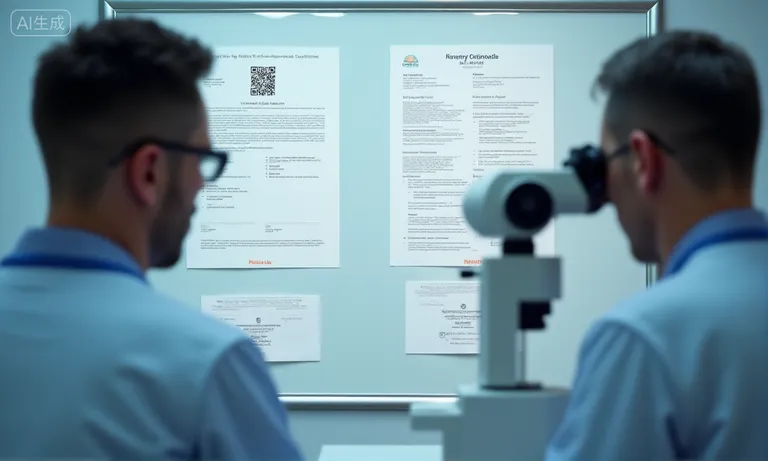
Dental-Lab-Certification-Quality-Inspection
What certifications (ISO, FDA, CE, ADA) are essential to prove trust and compliance?
Certifications act as a baseline guarantee. ISO 13485 ensures the lab operates under recognized medical device quality standards. FDA registration is critical for U.S. market compliance, while CE marking certifies acceptance in the European Union. Some labs also maintain recognition from ADA or national dental boards. These certifications show not only that products meet legal requirements but also that processes are regularly audited. Procurement teams often verify these credentials directly via the FDA Medical Device Database.
How do material quality and workmanship affect long-term reliability?
The choice of materials—zirconia, titanium, PMMA—directly affects patient outcomes and durability. Poorly sourced zirconia discs, for example, may cause fractures or color mismatches over time. Skilled workmanship ensures margins align properly, occlusion is balanced, and aesthetics are consistent. One U.K. clinic reported that shifting from a non-certified local provider to an ISO-certified overseas lab cut their long-term remake rate by over 40%, as better material tracking improved reliability.
Why does in-house capability and specialization improve consistency?
Labs with dedicated full arch teams and advanced in-house capabilities such as CAD/CAM milling and sintering lines deliver more predictable results. Specialized technicians who focus solely on implant frameworks develop expertise that generalist in-house labs cannot replicate. A European DSO shared that before outsourcing, they struggled with inconsistent bar fits; after partnering with a specialized lab, they reported 95% first-time fit accuracy across more than 200 cases.
Certifications, material quality, and specialization collectively define whether a lab is reliable enough for long-term collaboration. As an overseas dental lab, Raytops Dental Lab maintains ISO-certified processes and dedicated implant teams, offering partners confidence that compliance and technical standards are consistently met.
How Does Digital Capability Influence Accuracy and Efficiency?
Digital capability is one of the strongest predictors of outsourcing success. Labs that integrate CAD/CAM compatibility, advanced design platforms, and 3D printing deliver not only higher precision but also faster turnaround times, reducing clinical adjustments and procurement risks.
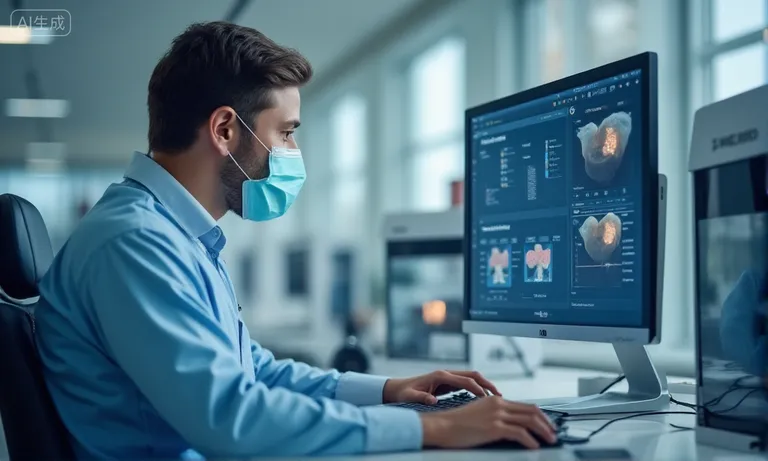
Dental-Lab-Digital-Workflow-3Shape-Exocad
Why is compatibility with CAD/CAM and STL files critical for outsourcing labs?
STL compatibility is the foundation of digital collaboration. When labs accept files directly from major scanners, clinicians avoid the delays and errors caused by manual conversions. A Canadian clinic once faced repeated reworks because their local lab’s software couldn’t fully process exported STL margins; after partnering with a lab aligned with 3Shape and Exocad standards, remake frequency fell by over 30%. Compatibility ensures smoother workflows and faster feedback loops.
How do advanced tools like 3Shape, Exocad, and 3D printing enhance precision?
- 3Shape design software allows margin tracing and implant planning with micron-level accuracy.
- Exocad provides flexibility across implant systems, reducing mismatches between abutments and frameworks.
- 3D printing accelerates prototype try-ins and surgical guide production, cutting design-to-chairside timelines.
These tools combine to eliminate manual guesswork, giving procurement teams confidence in consistent case outcomes. For further reading, the 3Shape Official Site provides detailed insights into digital workflow integration.
What case examples show digital workflows reducing turnaround times and errors?
| Case Type | Traditional Workflow | Digital Workflow | Result |
|---|---|---|---|
| U.S. single-practice clinic | 3–4 weeks, multiple adjustments | 10–12 days, minimal chairside edits | Faster patient scheduling |
| European DSO | High variability, 15% remake rate | CAD/CAM-enabled, <5% remake rate | Cost and time savings |
| Australian clinic | Manual wax-up, frequent inaccuracies | 3D printing prototypes for verification | Improved first-time fit |
Clinics consistently report that digital workflows translate into fewer errors, predictable timelines, and scalable processes. As an overseas dental lab, Raytops Dental Lab invests heavily in CAD/CAM and 3D printing infrastructure to ensure its partners see measurable gains in both accuracy and efficiency.
What Role Does Communication and Support Play in Successful Collaboration?
Even the most advanced lab technology cannot compensate for poor communication. Responsive support, clear points of contact, and training resources are often the deciding factors in whether outsourcing runs smoothly or creates hidden inefficiencies.

Dental-Lab-Communication-Client-Support
How does responsive communication prevent errors and delays in complex cases?
Delays often come not from technical issues, but from unanswered questions or unclear instructions. A DSO in California once lost two weeks on a full arch case because their local lab failed to confirm implant platform details in time. After shifting to an overseas partner with 24-hour response protocols, similar cases were resolved within 48 hours, reducing bottlenecks and chairside delays.
Why are dedicated account managers or portals critical in outsourcing?
- Single point of contact reduces confusion and miscommunication.
- Case portals provide real-time updates on design, production, and shipping.
- Multilingual support bridges cross-border communication, ensuring clarity in complex cases.
- Escalation protocols allow urgent cases to be prioritized without waiting in queue.
Dedicated support transforms outsourcing from a transactional model into a collaborative partnership.
What added value comes from labs offering training or practice support?
| Added Value | Description | Impact on Clinics |
|---|---|---|
| Online training sessions | Cover digital scan protocols & STL uploads | Fewer submission errors |
| Chairside adjustment guides | Step-by-step documents/videos | Reduced clinical time |
| Feedback loops | Post-case reviews & adjustment logs | Continuous improvement |
| Local seminars | Collaboration with distributors | Stronger clinician-lab alignment |
For example, a German clinic noted that after receiving digital scan training from their lab partner, STL submission errors dropped by over 50%, directly improving turnaround times.
Strong communication and support systems are not optional extras—they are the backbone of reliable collaboration. As an overseas dental lab, Raytops Dental Lab emphasizes multilingual support, account management, and structured feedback loops to help practices feel supported beyond case production.
How Should Turnaround Times and Logistics Be Evaluated?
Turnaround times and logistics often determine whether outsourcing feels like an advantage or a liability. Realistic delivery benchmarks, reliable shipping practices, and balanced cost-speed trade-offs are central to procurement evaluations.
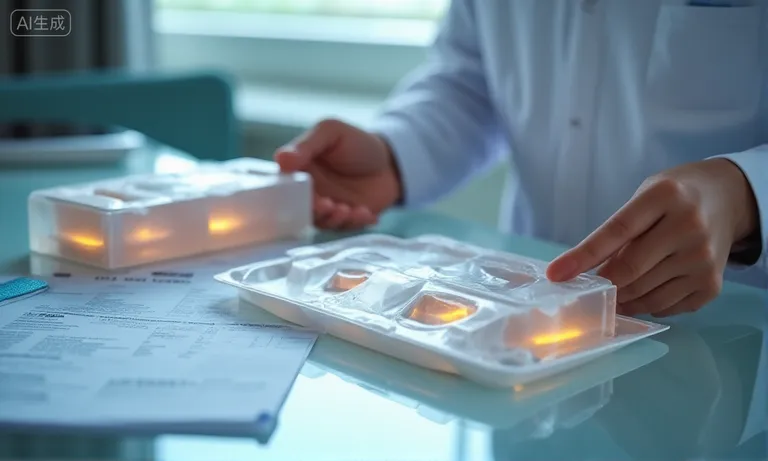
Dental-Lab-Logistics-Shipping-Customs
What are realistic benchmarks for full arch and complex restorations?
Benchmarks vary by complexity, but general expectations are:
- Single-unit crowns: 4–6 business days from scan to delivery.
- Full arch implant restorations: 10–14 business days under normal conditions.
- Complex hybrid cases: 3–4 weeks if verification steps are required.
Case studies show that clinics partnering with digital-ready overseas labs often save 3–5 days per case compared with local labs relying on manual workflows. Timelines should always be measured against both complexity and digital integration levels.
How do shipping practices and customs clearance affect global outsourcing labs?
- Pre-cleared shipping partners (DHL, UPS healthcare) reduce customs delays.
- Consolidated bulk shipments lower per-case costs and improve reliability.
- Accurate HS codes and documentation prevent customs rejections.
- Local distribution hubs in the U.S. or EU shorten last-mile delivery.
A U.S. DSO reported losing over $20,000 annually to customs-related delays before moving to a lab with pre-arranged clearance procedures. After the change, clearance issues dropped to under 2% of shipments.
Why is balancing turnaround speed with cost critical in procurement?
| Case Type | Fastest Option | Balanced Option | Impact |
|---|---|---|---|
| Standard crown/bridge | Express 3-day air freight (high cost) | 5–6 day standard air freight | Predictable costs, still competitive |
| Full arch case | Rush 7-day turnaround (premium pricing) | 10–12 day standard delivery | Lower cost, minimal patient delay |
| Complex hybrid | Local lab 3 weeks, limited QA | Overseas lab 3–4 weeks with digital verification | Similar timeline, better quality assurance |
Speed is valuable, but predictability and quality control matter more in long-term partnerships. Procurement leaders weigh logistics efficiency not just in days saved, but in reduced variability and avoided hidden costs.
Turnaround and logistics are where outsourcing either proves its value or undermines trust. As an overseas dental lab, Raytops Dental Lab works with established shipping partners and pre-clearance systems to ensure practices receive restorations on time, without unexpected delays or costs.
How Can Cost Transparency and Flexibility Reduce Procurement Risks?
When outsourcing decisions involve high case volumes, pricing clarity and service flexibility become as important as technical quality. Procurement teams need confidence that costs are predictable and scalable, without the risk of hidden fees undermining budgets.
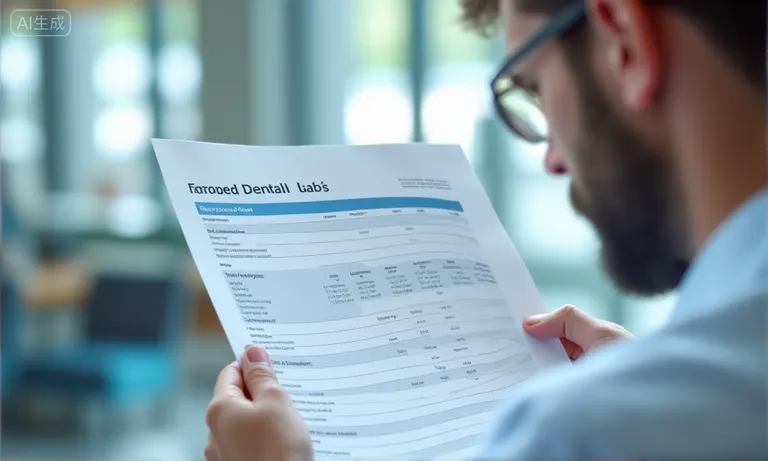
Dental-Lab-Cost-Transparency-Contract
What pricing models (per-unit, bundled, tiered) are most common in outsourcing labs?
| Pricing Model | Description | Use Case | Procurement Benefit |
|---|---|---|---|
| Per-unit | Fixed fee per crown, bridge, or full arch | Small clinics with irregular volumes | Easy to forecast costs |
| Bundled | Package pricing including design, production, shipping | DSOs handling multi-case shipments | Streamlined billing |
| Tiered | Volume-based discounts | Large-scale outsourcing partners | Lower unit costs as volumes grow |
Labs offering multiple models allow procurement teams to match budget strategy with operational needs.
Why is transparency in hidden fees (shipping, remake, rush) essential?
- Shipping charges: Some labs quote low per-unit fees but add inflated freight costs.
- Remake policies: Hidden remake fees can erode savings; leading labs include remake coverage below a certain threshold.
- Rush orders: Premium fees for expedited work should be clearly documented upfront.
A U.S. clinic reported losing 15% of projected savings in its first outsourcing attempt due to undisclosed remake charges. After switching to a lab with transparent contracts, the clinic regained predictable margins and improved financial planning.
How does customization and service flexibility add long-term value?
Flexibility is critical when volumes fluctuate or when practices expand services. For example, a mid-sized DSO in Australia shifted to an overseas partner offering hybrid service models—standard outsourcing for routine cases and premium fast-track lanes for urgent patients. This adaptability allowed the DSO to expand implant services by 20% in one year without hiring additional technicians.
Procurement teams evaluate labs not only on per-unit cost, but on how well pricing transparency and flexibility reduce long-term risks. As an overseas dental lab, Raytops Dental Lab builds predictable contracts that avoid hidden costs, while offering flexible models that scale with practice growth. For additional insights, Dental Economics often publishes reviews on outsourcing cost structures and risk management.
Why Does Reputation and Client Feedback Matter in Lab Selection?
While pricing and logistics can be measured on spreadsheets, a lab’s reputation and client feedback often reveal the realities of daily collaboration. Procurement teams rely on peer recommendations, published reviews, and long-term satisfaction evidence to evaluate whether a lab is a reliable partner.
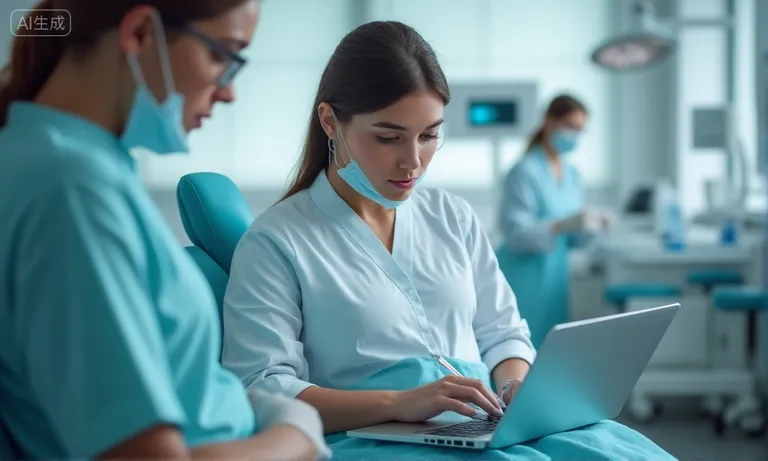
Image
ALT: Dental-Lab-Reputation-Client-Feedback
Prompt: A highly realistic, ultra-detailed, professional-quality photo captured in a clean, well-lit environment. Materials must be photorealistic, and rendered with DSLR-level clarity. Lighting should be soft daylight or studio white light, avoiding cold or bluish clinical tones. A dentist writing a testimonial on a laptop while lab technicians work in the background.
How do online reviews and peer recommendations validate reliability?
- Peer recommendations from local study clubs or DSO networks are often considered more trustworthy than promotional claims.
- Online reviews on platforms like Dentistry Today highlight both strengths and recurring issues in lab performance.
- Case references provided by labs give procurement teams a direct way to verify consistency with existing partners.
Positive feedback across these channels reduces perceived risks and speeds up procurement decisions.
What case evidence shows consistent client satisfaction driving long-term partnerships?
A distributor in Australia shared that after testing three regional labs, they continued working with the same overseas partner for eight years, citing reliability and consistent first-time fit accuracy as the main reasons. Similarly, a U.S. mid-sized DSO reported that quarterly satisfaction surveys showed a 90%+ approval rating for its chosen outsourcing lab, leading to contract renewals without renegotiation. These examples show that reputation is not abstract—it directly impacts procurement stability and continuity.
Why is reputation as important as cost or turnaround time?
| Factor | Short-Term Impact | Long-Term Impact | Procurement Risk if Ignored |
|---|---|---|---|
| Cost | Immediate savings | Margins improve with scale | Hidden fees may erode ROI |
| Turnaround time | Faster delivery | Predictable patient scheduling | Delays disrupt operations |
| Reputation | Harder to quantify | Sustains trust & renewals | Poor reputation increases hidden risks |
Reputation may not appear on the invoice, but it determines whether collaboration remains sustainable. Procurement teams should weigh feedback as heavily as cost or speed when selecting partners. As an overseas dental lab, Raytops Dental Lab views long-term client feedback as a guiding measure, ensuring that consistency and trust remain at the center of its collaborations.
What Makes a Dental Outsourcing Lab a Scalable and Reliable Partner?
For practices and procurement teams, the true test of an outsourcing lab is not just one successful case, but whether the lab can scale volumes consistently without sacrificing quality. Scalability and reliability turn outsourcing from a short-term cost decision into a long-term strategic advantage.

Dental-Lab-Scalable-Reliable-Production
How do outsourcing labs support scaling volume demands over time?
Outsourcing allows clinics and DSOs to expand implant services without proportional increases in staff or equipment. Labs with dedicated high-volume production lines can absorb sudden spikes in demand while maintaining delivery timelines. One U.S. DSO reported that during a merger of 20 practices, outsourcing capacity enabled them to process 40% more cases within six months without adding new internal technicians.
What practices ensure consistent outcomes across hundreds of cases?
- Standardized digital workflows ensure every STL file is handled uniformly.
- Dedicated QA checkpoints at design, milling, and finishing stages reduce variability.
- Technician specialization builds repeatable expertise for complex implant frameworks.
- Feedback integration allows clinics to track adjustments and continuously improve outcomes.
Consistency is not just about lowering remake rates—it establishes predictability, which is critical for procurement planning.
Why is scalability as important as immediate cost savings?
| Factor | Immediate Benefit | Long-Term Impact | Procurement Insight |
|---|---|---|---|
| Cost savings | Lower per-case expense | Margins improve | Short-term focus may miss growth potential |
| Scalability | Capacity to handle demand spikes | Enables practice expansion | Strategic value for DSOs |
| Reliability | On-time delivery | Trust in consistent outcomes | Reduces procurement risks |
A Canadian group practice shared that while local labs initially offered competitive pricing, they struggled to maintain delivery consistency once case volume doubled. By transitioning to an overseas partner with proven scalability, they unlocked sustainable growth and predictable outcomes.
Scalability and reliability are the foundations of long-term outsourcing value. As an overseas dental lab, Raytops Dental Lab supports clinics and DSOs not only in meeting today’s needs but in planning for tomorrow’s growth with consistent, scalable solutions.
Conclusion
Choosing the right outsourcing lab goes beyond price comparisons. Certifications, digital capability, communication, logistics, cost transparency, and reputation collectively determine whether collaboration is reliable and scalable. Case studies show that practices gain not only lower costs but also predictable outcomes, faster workflows, and long-term strategic value when outsourcing to trusted partners. As an overseas dental lab, Raytops Dental Lab positions itself as a collaborative partner—supporting clinics and DSOs with compliance, technology, and scalable solutions that align with procurement priorities. For decision-makers, outsourcing is not just a transaction—it is a path to sustainable growth and workflow confidence.
